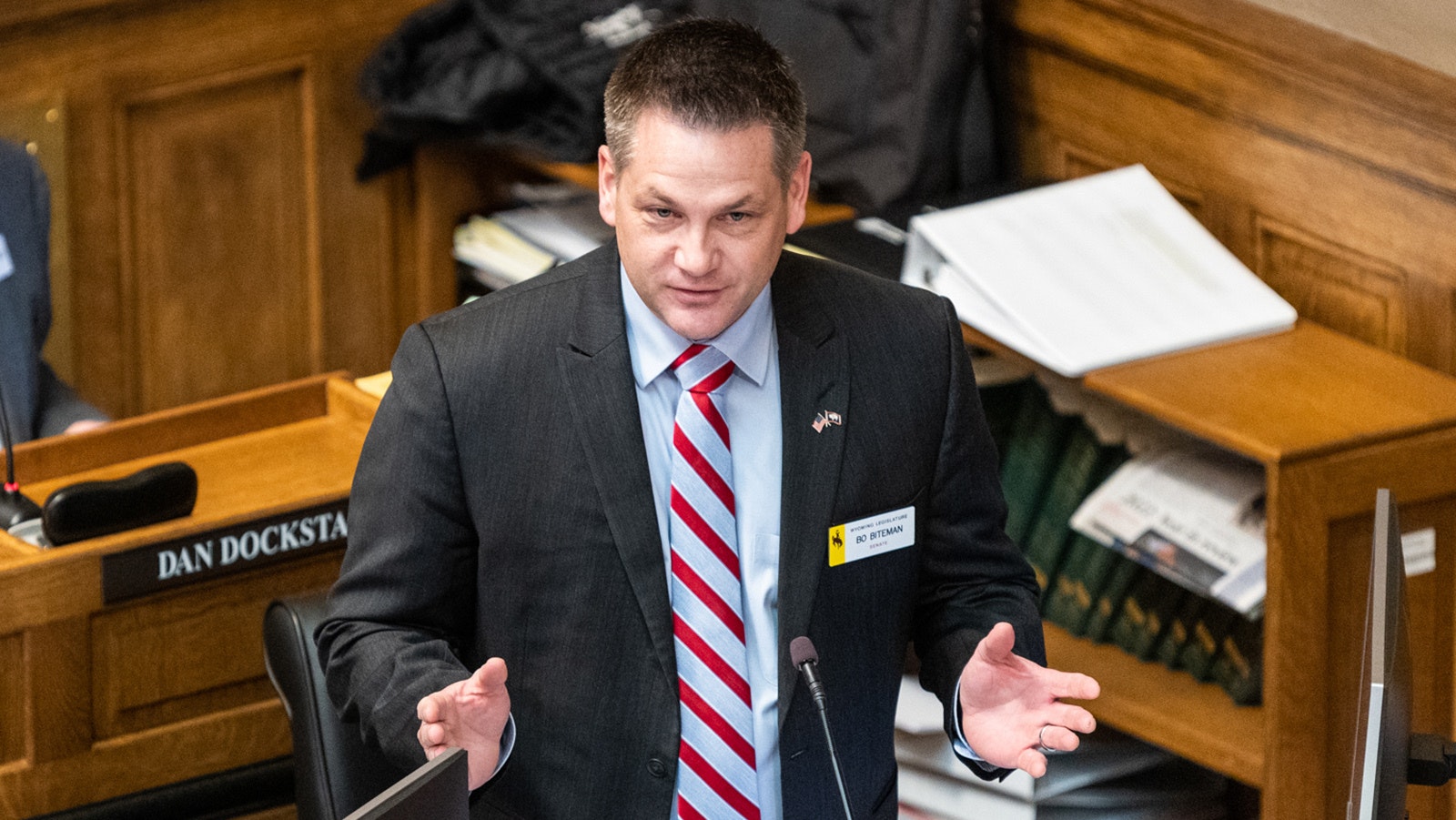The Wyoming Senate debated a pair of bills this week aimed at pushing back against a wave of environmental, social and governance (ESG) policies.
Both bills passed first and second readings by wide margins on the Senate floor, making it likely they will move to the House next week for consideration.
ESG measures rate funds on various markers of progressive-friendly policies related to protecting the environment, diversity in the workplace and community relations. Any association with fossil fuel industries quickly gets a fund rated down, but timber industries, gun manufacturers and agricultural businesses also face pressure from the movement.
Critics of ESG say it uses the financial process to push progressive political and social agendas, which circumnavigates any democratic process.
Invisible Hand
Sen. Bo Biteman, R-Ranchester, sponsored both of the measures, Senate Files 172 and 159.
The first deals with the hiring and retention of Wyoming’s investment managers, and the second applies to companies the state contracts with.
“Adam Smith talks about the invisible hand. ESG is the invisible fist. It’s the invisible gun to the head,” Biteman explained, referring to the 18th century philosopher’s argument that people acting in their self-interest create interdependencies that benefit society overall.
Biteman said ESG has turned “investing on its head,” placing politics above realizing sound returns on investments.
“If you’re in charge of public money, taxpayer money, your No. 1 duty is to maximize returns for that money, pure and simple,” he said. “You’re not supposed to take into account environment, social and governance factors.”
Proxy Power
His legislation contains an opt-out provision in cases where no viable alternative exists.
Biteman said that when the state contracts with large firms, they end up being proxies for the state of Wyoming, meaning they can vote at shareholder meetings.
This power has been used by some ESG organizations to put executives on company boards who are favorable to ESG causes.
Through proxy voting, Engine No. 1, an anti-fossil fuel activist group, was able to replace three members of ExxonMobil’s board with people sympathetic to eliminating fossil fuels, even though the group only owned 0.02% of the company’s shares.
“By allowing this to happen, we’re basically slitting our own throats,” Biteman said.
Downside
Not all of the Wyoming Senate was on board with Biteman’s ESG proposals.
Sen. Stephan Pappas, R-Cheyenne, while supportive of the intent of the bills, expressed concern over ramifications if they passed.
The state would be required to renegotiate contracts, and some may have with multiple fund managers, he said. The bills also could make companies reluctant to do business with Wyoming.
“There’s a downside to doing this,” Pappas said.
Boycotting Boycotts
Sen. Chriss Rothfuss, D-Laramie, said he supports optimizing Wyoming’s economic return on investments, but is concerned with how many companies would be considered out of compliance if the bill passed and were unable to do business with Wyoming.
“So many companies have some type of proclaimed social agenda,” Rothfuss said.
By refusing to do business with companies based on their support for one policy position or another would effectively be doing what the bill is trying to oppose, Rothfuss said.
He also pointed out the bills contain language concerning actions that would be considered furthering a political goal, such as access to abortion, sex or gender changes or transgender surgery.
“We’re going to economically boycott any company that economically boycotts other companies,” Rothfuss said. “We seem to be taking sides if someone takes sides.”
Sen. Tara Nethercott, R-Cheyenne, raised concerns the bill would violate First Amendment rights, among others, and ultimately cost taxpayer money fighting constitutional challenges.
Biteman Responds
Biteman denied his bills would be unconstitutional.
“We have a right to not do business with people who want to put us out of business. It’s common sense,” Biteman said.
Sen. Larry Hicks, R-Baggs, said other states have passed similar bills without any constitutional challenges so far.
Responding to concerns this would be so broad as to target any company that has an ESG statement, Biteman used a hypothetical fund manager that decides they’re not going to invest in fossil fuel companies to lower greenhouse gas emissions.
The bill would prohibit those kinds of actions, Biteman said, but it wouldn’t have the treasurer’s office looking at the ESG policies of the companies those managers invest in.
Oil companies have ESG statements, Biteman pointed out, saying there’s a difference between “virtue signaling” and making fiduciary decisions that are not in the best interest of investors.
Nearly There
Both bills passed the Senate on first and second reading this week. The bills must pass a third reading before moving to the House.





